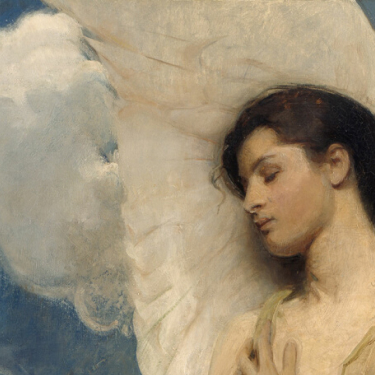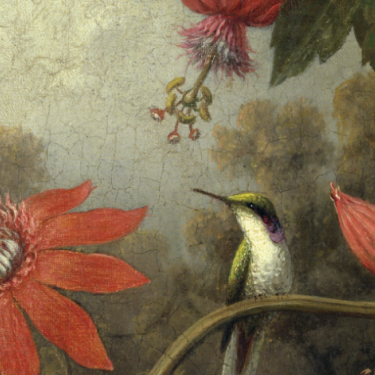The Craftsperson
COGNITION

ISTP
Quick definition
Independent and individualistic type who values personal time and spontaneity. Highly practical yet flexible. Curious about the world. Pays attention to details and facts.
Average user score
83
Find your score on over 100 traits on Dimensional.
Download
ISTPs make for level-headed leaders. They're excellent at handling pressure, and can stay calm no matter how many changes or pivots take place in a project. This can be calming for their subordinates, particularly in stressful times. Craftspeople have both rational and creative minds, and do well in entrepreneurial workplaces that require constant decision making and action. Paired with their hands-on interest in the mechanics and workings of things, this makes them thorough and flexible leaders who can handle most challenges in stride.
That said, ISTPs enjoy the freedom to decide their own schedules and task lists. They may feel burdened by having to manage or run a team, or by having to respond to the needs of their colleagues. They do best in leadership positions where all members of the team are expected to work autonomously, and where they can continue to manage their own schedule while delegating tasks to the wider team.
Distribution of user scores
0
25
50
75
100
Other Archetypes in Cognition
Opposite
(I)ntroverted
(E)xtroverted
(S)ensing
I(N)tuitive
(F)eeling
(T)hinking
(J)udging
(P)erceiving
When it comes to romance, ISTPs are complex: they place such a high value on their own independence that they often avoid committed partnerships out of a fear of feeling restricted or limited. As ISTPs are free-thinkers, they shy away from traditional relationships or ideas of how a romantic partnership "should" look and progress. Instead, they enjoy going with the flow, and tend to find partners who are similarly able to live in the moment.
While ISTPs may be slow to commit, they're quick to be passionate and sensual with their partners, and enjoy shared intimacy and physical touch. Their secure self-image means they're unlikely to mold themselves to fit their partner's image, but they can sometimes have high expectations of their counterpart, and may encourage their partners to be more relaxed and spontaneous to suit their needs. A partnership with ISTPs works best when both partners value their independence and have the mental and physical space they need to pursue their various goals and whims.
As result-oriented types, Craftspeople are excellent at task completion. They prefer hands-on work where they can independently develop their knowledge through experience. ISTPs tend to be assets to their workplace, as they genuinely care about improving at their tasks. Their driven, focused, and practical nature means they're usually able to concentrate on the priority items in front of them. Craftspeople are excellent problem solvers, and are able to adapt quickly if a project changes direction. It's rare that you'll hear this type complain, as their flexible and rational nature makes them easy-going when faced with stress or surprises.
Being stubbornly independent, the Craftsperson can sometimes make workplace decisions based on their own intuition rather than the bigger picture. Though detail-oriented, they can focus so intently on the present that they forget the bigger picture or the communal goals of their team. They prefer freedom to accomplish tasks their own way, and enjoy roles where they can figure out how to perfect and improve upon their personal approach.
This type commonly finds careers in the trades, as firefighters, in law enforcement, in data-science or as engineers; their creative, mechanical streak also makes them apt at photography and graphic design.
Craftspeople are free-thinkers, and often know what it is they want and how they'd like to get it. But they should stand to be cautious that this pursuit doesn't hurt those around them. At times, this type can be so observant of the facts and details that they accidentally glide over the emotions of those around them. This isn't meant to be cruel — rather, this type just operates with a degree of spontaneity and intuition that others may find hard to relate to. Because they focus intently on personal independence, they can work on paying more attention to the needs of a collective group or partner.
Unhealthy Adaptations
- Being flighty at the beginning stages of a relationship out of fear of commitment
- Exhibiting impulsive risk-taking behavior out of a need to mix up their routines
- Quitting a job, relationship, or project early out of boredom and restlessness, leading to missed opportunities or a failure to master a certain skill set
- Struggling to adapt to boundaries or rules set by others around them out of an aversion to repetition and restriction
When it comes to romance, Craftspeople are complex: they place such a high value on their own independence that they often avoid committed partnerships out of a fear of feeling restricted or limited. As ISTPs are free-thinkers, they shy away from traditional relationships or ideas of how a romantic partnership "should" look and progress. Instead, they enjoy going with the flow, and tend to find partners who are similarly able to live in the moment.
While ISTPs may be slow to commit, they're quick to be passionate and sensual with their partners, and enjoy shared intimacy and physical touch. Their secure self-image means they're unlikely to mold themselves to fit their partner's image, but they can sometimes have high expectations of their counterpart, and may encourage their partners to be more relaxed and spontaneous to suit their needs. A partnership with a Craftsperson works best when both partners value their independence and have the mental and physical space they need to pursue their various goals and whims.
ISTPs make for level-headed leaders. As they're excellent in handling pressure, they can stay calm no matter how many changes or pivots take place in a project. This can be calming for their subordinates, particularly in stressful times. As ISTPs have both rational and creative minds, they're often able to find original solutions in the workplace. As they thrive on unpredictability and change, they can do well in entrepreneurial workplaces that require constant decision making and action. Paired with their hands-on interest in the mechanics and workings of things, this makes them thorough and flexible leaders who can handle most challenges in stride.
That said, ISTPs enjoy the freedom to decide their own schedules and task lists. They may feel burdened by having to manage or run a team, or by having to respond to the needs of their colleagues. They do best in leadership positions where all members of the team are expected to work autonomously, and where they can continue to manage their own schedule while delegating tasks to the wider team.
ISTPs are happiest in a state of constant change. They seek flexibility in their routines, workplaces, and even partnerships, and feel their best when they know they have freedom to determine their own schedules and lifestyles. They enjoy circumstances where they can nurture their own sense of adventure and take action decisively and rationally. The Craftsperson is generally happiest when they have opportunities to master a tool, process, or task, whether in their hobbies or careers.
Healthy Adaptations
- Seeking out careers where they can perfect skills and work somewhat independently
- Being honest about their needs of independence and space with close friends or intimate partners
- Not over-committing themselves too far in advance, but following through on the commitments they do make
- Picking up a variety of different hobbies that use different skill sets, while making an effort to complete a task or project before moving onto the next
- Storing spontaneous energy for their free-time, so that they can focus on the top priority tasks (both at work and at home)
The Craftsperson knows their strengths and is excellent at putting them to use. Incredibly logical with a strong ability to assess and understand facts, they're a realistic type who likes to observe the situations they're in and act logically and independently within them. While they may be facts-driven, Craftspeople are also flexible, and highly adaptive in almost any situation—making them great in a crisis. Forward-thinking, they enjoy springing into action rather than dwelling on different paths or options. They value having a practical understanding of something, but can draw on their creativity and flexibility to arrive at new solutions or ideas. This makes them an asset across different professions and in relationships; as ISTPs value flexibility and change, they tend to be open-minded and can change their behavior or routines if they so desire.
- Staying calm in a variety of environments and situations
- Adapting to unexpected changes at work, home, or in relationships with ease and an open-mind
- Bringing tasks to completion on time and in order of importance
- Reflecting on personal approaches and perfecting their own methods and processes
- Acting independently without needing to consult others to validate their thinking or decisions
- Combining practicality and creativity to solve challenges or respond to a crisis














